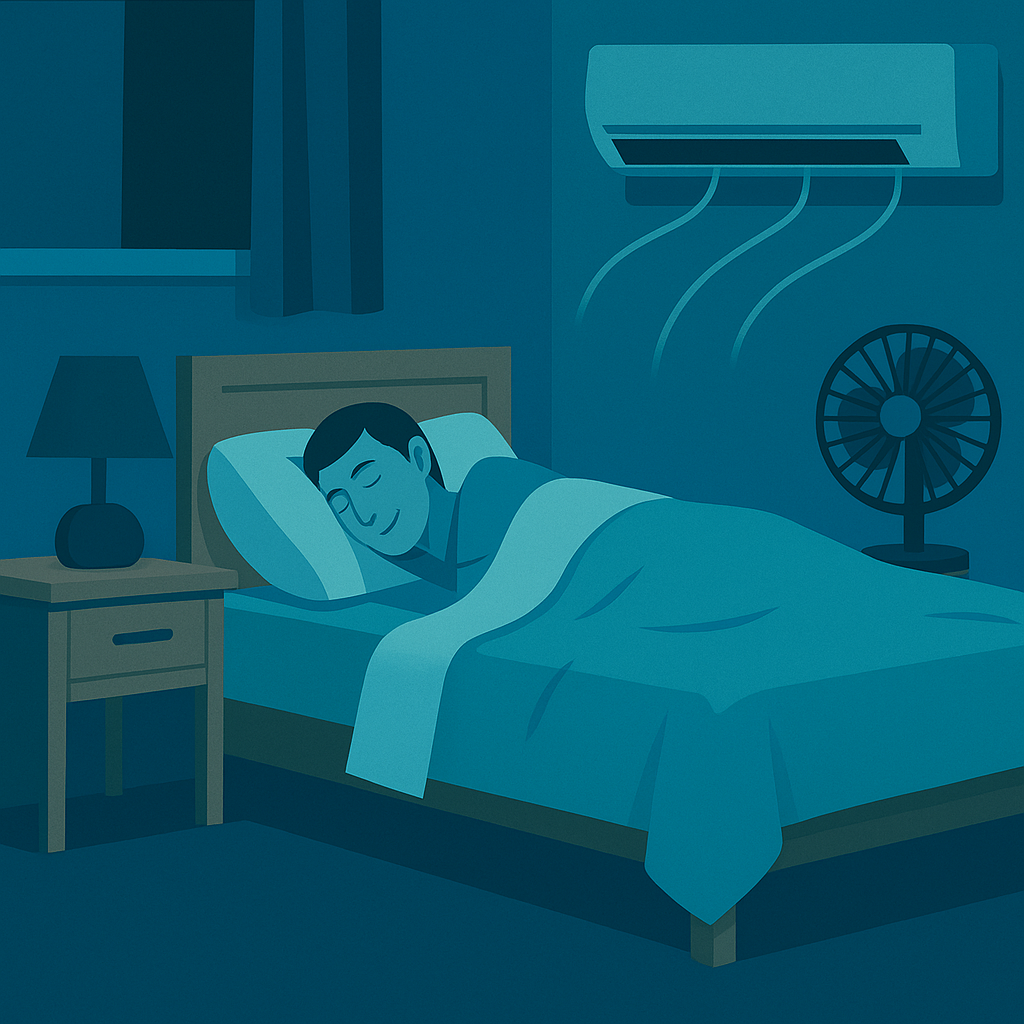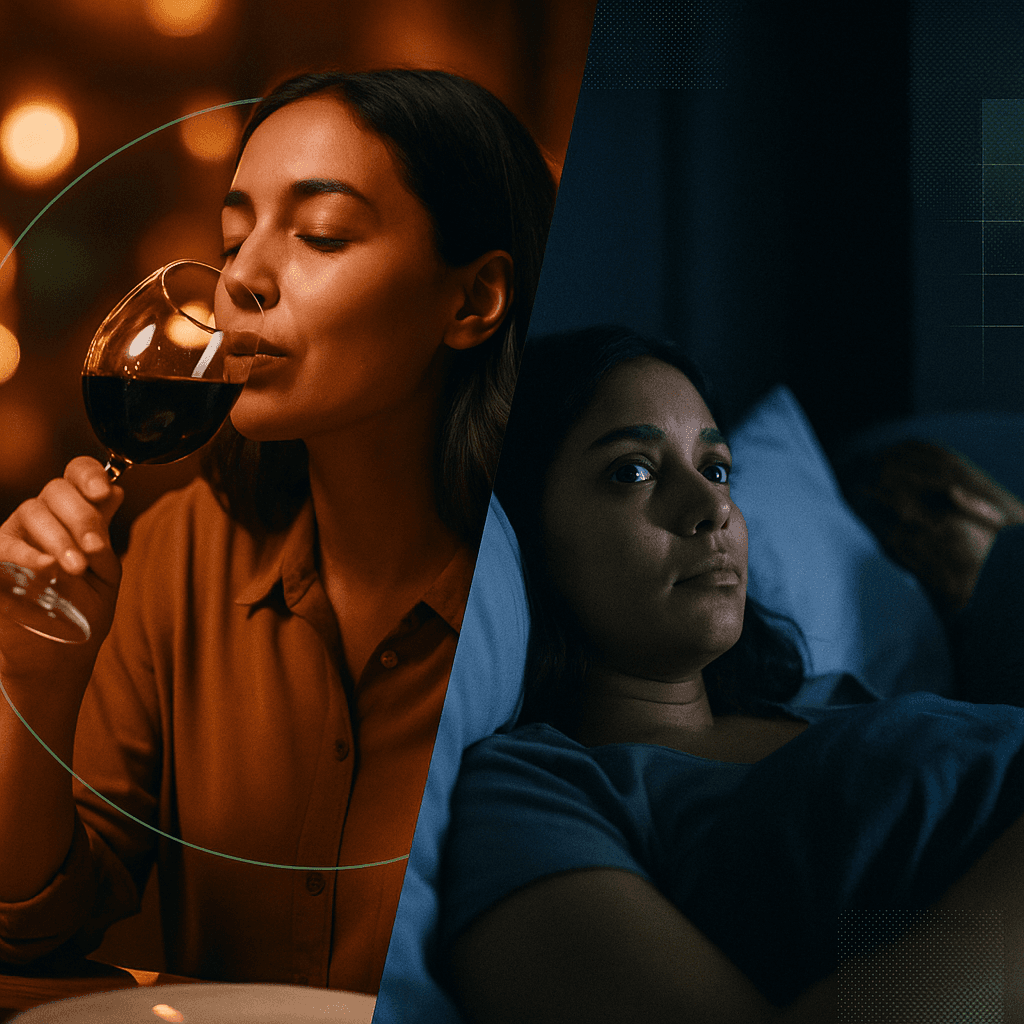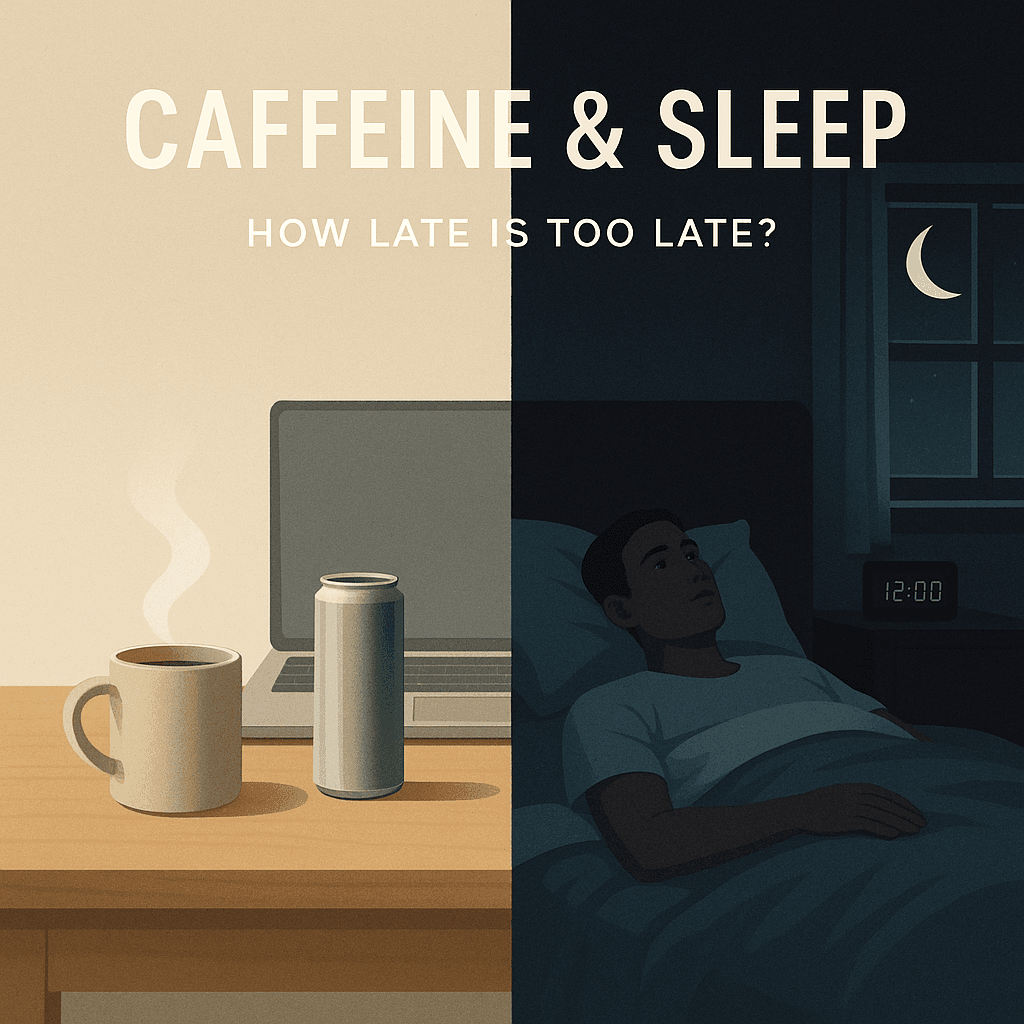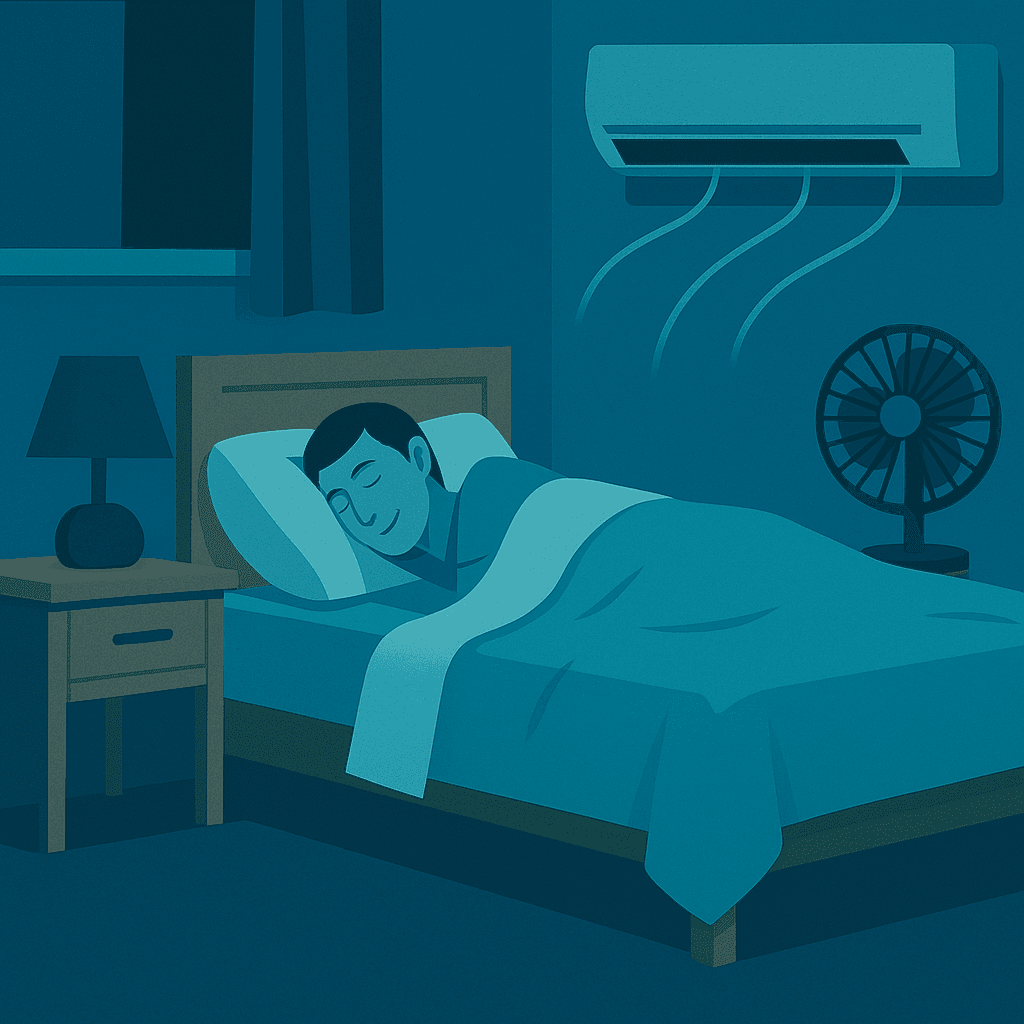Why You Get Hot When You Sleep (and What to Do About It)
Have you ever woken up in the middle of the night, sweating under your blanket, even though your room didn’t feel that warm? You’re not alone. Feeling too hot while you sleep is one of the most common reasons people toss and turn at night.
The truth is, getting hot at night isn’t random. It’s a mix of biology, sleep stages, and your bedroom environment. Once you understand how these pieces fit together, you can make a few small changes that help you stay cooler and sleep deeper.

A Simple Way to Picture It
Think of your body like a smart home on “night mode.”
- In the evening, your “thermostat” lowers your core temperature.
- Your “vents” (hands and feet) open up to release heat.
- But during REM sleep—when you dream—the thermostat goes partly offline. Even small heat spikes can feel big.
Why Your Body Gets Hot at Night
1) Your Core Temperature Drops
About two hours before bedtime, your core body temperature starts to fall about 1°C.
- Warm blood flows to your hands and feet, helping your body shed heat.
- This cooling is your body’s natural signal to fall asleep.
Tip: warming your hands/feet before bed can speed this cooling process.
2) REM Sleep Turns Down Your Thermostat
In REM sleep, the body partly shuts off sweating and shivering. If your bed is already warm, you can’t cool down effectively—leading to sweaty wake-ups ~90 minutes after falling asleep.
3) Your Bed Microclimate
The pocket of air under your covers (your “bed microclimate”) matters more than the room air.
- Heavy bedding, foam mattresses, or plastic protectors trap heat and humidity.
- A hot microclimate blocks normal cooling and makes sleep lighter.
Common Reasons You Overheat at Night
Room & Habits
- Room too warm: Best range = 60–67°F (16–19°C).
- Heavy/synthetic bedding: Use cotton percale or linen, lighter duvet.
- Poor airflow: Add a fan, AC, or crack a window.
- Hot shower right before bed: Prefer a warm shower 1–2 hours before; you cool faster afterward.
- Food/drink triggers: Avoid alcohol, caffeine, spicy meals within 3–4 hours of bed.
- Late exercise: Finish intense workouts 3+ hours before bedtime.
Health Factors
- Menopause: Hot flashes disrupt sleep—cool the room, layer bedding.
- Medications: Some antidepressants, steroids, diabetes meds can cause sweating.
- Sleep apnea: Linked to night sweats (esp. with snoring/gasping).
- Thyroid/illness: Can drive overheating.
See a doctor if night sweats persist 2+ weeks with fever, weight loss, rash, or pain.
Troubleshooting Guide
| When You Get Hot | Likely Cause | Quick Fix |
|---|---|---|
| Right at lights-out | Room too warm, caffeine, stress | Set to ~65°F, lighter sheets, avoid caffeine after lunch |
| 60–120 min after sleep onset | First REM cycle | Lighter duvet, fan, breathable topper |
| Second half of the night | Alcohol wearing off, microclimate buildup, apnea | Skip alcohol, steady room temperature, check for snoring |
| Near wake time | Body temperature naturally rises | Blackout curtains, keep room cool until alarm |
Action Plan (Ranked)
- Cool the room: 60–67°F (16–19°C).
- Shower smart: Warm shower 1–2 hours before bed.
- Optimize bedding: Breathable sheets + lighter duvet.
- Steady airflow: Fan, window, or AC.
- Cut triggers: No alcohol/caffeine/spicy food before bed.
- Time workouts: Finish ≥3 hours before bed.
- Medical check: If problems persist or red flags appear.
FAQs
Why do I get hot 90 minutes after falling asleep?
That’s your first REM stage—your body dials down sweating and shivering, so heat builds faster.
Is sweating at night normal?
Mild sweating can be normal with warm bedding. Heavy, drenching sweats are not and need medical review.
What’s the best sleep temperature?
Most people sleep best at 60–67°F (16–19°C) with breathable bedding.
Cold shower before bed—good idea?
A warm shower 1–2 hours before bed works better because you cool faster afterward.
The Bottom Line
Overheating at night is usually a mix of body rhythms, dream-stage quirks, and bedroom setup. Small changes—cooler room, breathable bedding, warm-then-cool shower—can keep you comfortable and boost deep sleep. If overheating continues with other symptoms, check with a doctor.
RELATED TOPICS
POPULAR IN BETTER SLEEP SOLUTIONS

Alcohol & Sleep: Why Nightcaps Backfire (2025 Guide)
Alcohol can help you fall asleep faster—but it suppresses REM, fragments the night, and leaves you groggy. Practical cutoffs and standard drink math.

Caffeine & Sleep: How Late Is Too Late? (2025 Guide)
Caffeine’s half-life, timing rules of thumb, and how to set a personal cutoff so you sleep on time—without giving up coffee.

Sleep Disorders and Challenges
Understand insomnia, sleep apnea, restless legs, nightmares, and jet lag, plus practical next steps.